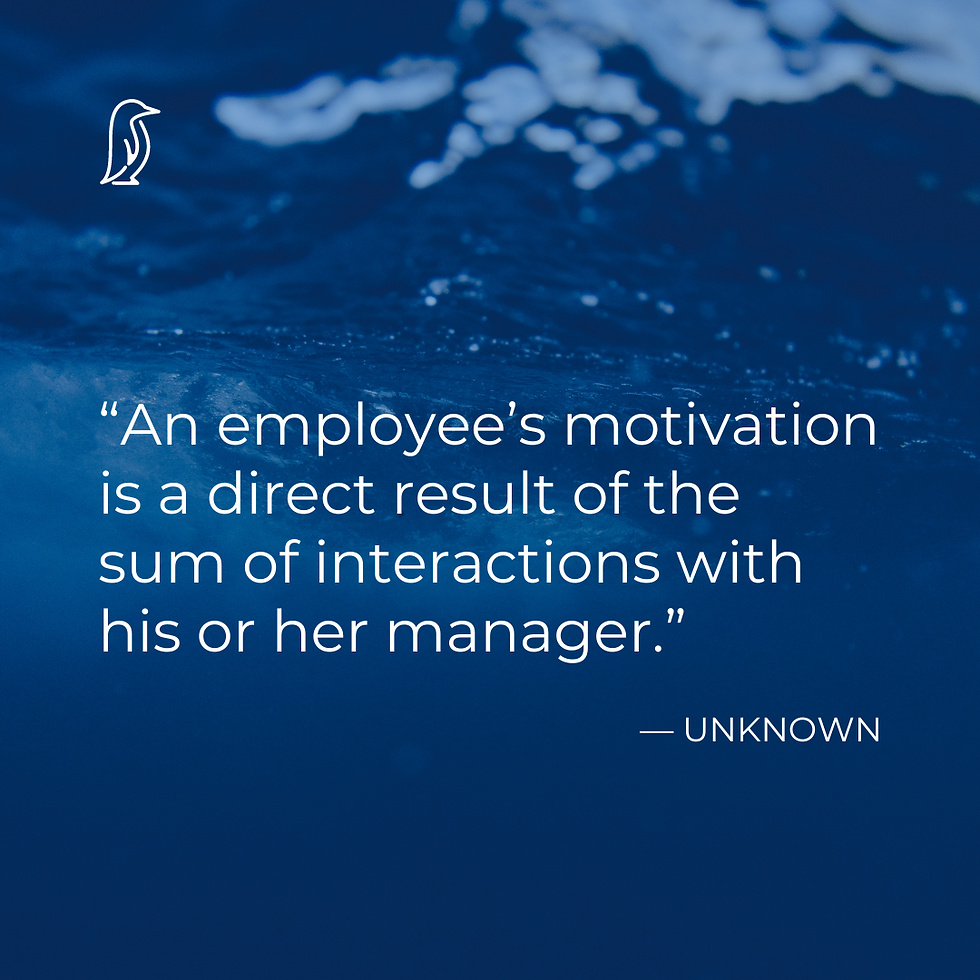Why Middle Managers Are Essential For Company Success And Employee Well-being

Table of Contents
The Bridge Between Leadership and Employees
Middle managers are the crucial bridge connecting upper management's strategic vision with the day-to-day realities of the workforce. Their effectiveness directly impacts communication, employee development, and overall organizational health.
Effective Communication and Information Flow
Effective communication is the cornerstone of any successful organization, and middle managers are central to this process. They act as a conduit, translating complex company strategies into actionable tasks for their teams and vice versa.
- Relaying top-down directives: Middle managers ensure that company-wide goals and initiatives are clearly understood and implemented at the team level.
- Gathering employee feedback: They act as a vital feedback loop, gathering input from employees and relaying concerns and suggestions to upper management. This improves transparency and fosters a sense of inclusivity.
- Identifying communication breakdowns: By actively listening and observing, middle managers can identify and address communication inefficiencies, ensuring clear and consistent messaging.
- Improving transparency: Open and honest communication, facilitated by middle managers, builds trust and fosters a positive work environment, leading to improved employee engagement.
Mentorship and Employee Development
Beyond communication, effective middle managers play a pivotal role in mentoring and developing their team members. This investment in human capital directly impacts employee satisfaction and retention.
- Providing training and development opportunities: Middle managers identify individual skill gaps and proactively seek opportunities for their team’s professional growth. This includes recommending relevant training programs and providing access to learning resources.
- Mentoring junior employees: They act as guides and mentors, providing support and guidance to help junior employees navigate their careers and develop their skills. This improves employee morale and fosters loyalty.
- Fostering a culture of learning and growth: By encouraging continuous learning and development, middle managers create a dynamic and engaging work environment where employees feel valued and challenged.
- Conducting performance reviews: Regular performance reviews, facilitated effectively by middle managers, provide valuable feedback, identify areas for improvement, and foster growth. This is crucial for performance management and career progression.
Driving Productivity and Achieving Business Goals
Middle managers are not simply messengers; they are the driving force behind achieving company goals. Their ability to delegate, manage projects, and foster teamwork is critical for success.
Task Delegation and Project Management
Middle managers are essential for breaking down large-scale projects into smaller, manageable tasks, ensuring efficient resource allocation, and monitoring progress towards project completion.
- Assigning tasks effectively: Understanding individual strengths and weaknesses allows middle managers to assign tasks optimally, maximizing team efficiency.
- Monitoring progress: Regular monitoring ensures tasks are completed on time and to the required standard. This proactive approach prevents bottlenecks and delays.
- Resolving conflicts: Middle managers mediate disagreements and conflicts, keeping projects on track and fostering a positive team dynamic.
- Identifying bottlenecks: Proactive identification and resolution of bottlenecks ensures smooth workflow and prevents project delays.
- Improving team efficiency: By optimizing task allocation and resource management, middle managers dramatically improve overall team efficiency and productivity.
Fostering Teamwork and Collaboration
Strong middle managers cultivate a collaborative environment where teamwork thrives. This leads to improved employee morale, higher productivity, and enhanced company success.
- Promoting a positive team dynamic: Creating a supportive and inclusive environment where employees feel valued and respected is critical for team cohesion.
- Resolving conflicts: Effective conflict resolution techniques prevent small disagreements from escalating into major issues, ensuring smooth team operation.
- Fostering open communication: Open communication channels ensure that all team members are informed and can contribute effectively to the project.
- Recognizing team achievements: Publicly acknowledging and rewarding team accomplishments boosts morale, fosters a sense of shared success, and encourages continued collaboration.
Improving Employee Well-being and Retention
Investing in employee well-being is a direct investment in company success. Middle managers play a crucial role in creating a supportive work environment that fosters employee engagement and retention.
Creating a Supportive Work Environment
Middle managers are responsible for fostering a positive and productive work atmosphere where employees feel supported, valued, and respected.
- Addressing employee concerns: Being approachable and responsive to employee concerns demonstrates care and builds trust.
- Providing support and guidance: Offering support and guidance during challenging times shows empathy and promotes employee loyalty.
- Promoting work-life balance: Encouraging a healthy work-life balance reduces stress and improves overall employee well-being.
- Recognizing employee contributions: Regularly acknowledging and rewarding employee contributions boosts morale and strengthens team cohesion.
Identifying and Addressing Employee Issues
Proactive identification and resolution of employee issues prevents small problems from escalating into larger, more damaging issues.
- Early detection of employee dissatisfaction: Regular check-ins and open communication help identify potential problems before they escalate.
- Proactive problem-solving: Addressing concerns promptly shows employees that their well-being is a priority.
- Conflict mediation: Effectively mediating conflicts prevents workplace disputes from negatively impacting team dynamics.
- Employee support systems: Middle managers can help connect employees with relevant support systems, such as HR or employee assistance programs.
Conclusion
In conclusion, effective middle managers are essential for bridging communication gaps, driving productivity, fostering collaboration, and improving employee well-being. These contributions directly translate to greater company success. Investing in effective middle management is a crucial step in achieving both company success and employee well-being. Recognize the value of your middle managers and empower them to lead your teams to greater heights!

Featured Posts
-
 Jesse Watters Faces Backlash Hypocrisy Claims After Wife Cheating Joke
May 10, 2025
Jesse Watters Faces Backlash Hypocrisy Claims After Wife Cheating Joke
May 10, 2025 -
 Three Countries Targeted In Uks Tougher Asylum Crackdown
May 10, 2025
Three Countries Targeted In Uks Tougher Asylum Crackdown
May 10, 2025 -
 Debate Sobre Derechos Trans Arresto De Universitaria Por Usar Bano Femenino
May 10, 2025
Debate Sobre Derechos Trans Arresto De Universitaria Por Usar Bano Femenino
May 10, 2025 -
 James Comers Epstein Files Rant Pam Bondis Reaction Sparks Controversy
May 10, 2025
James Comers Epstein Files Rant Pam Bondis Reaction Sparks Controversy
May 10, 2025 -
 Greenlands Dependence On Denmark Examining The Post Trump Era
May 10, 2025
Greenlands Dependence On Denmark Examining The Post Trump Era
May 10, 2025
